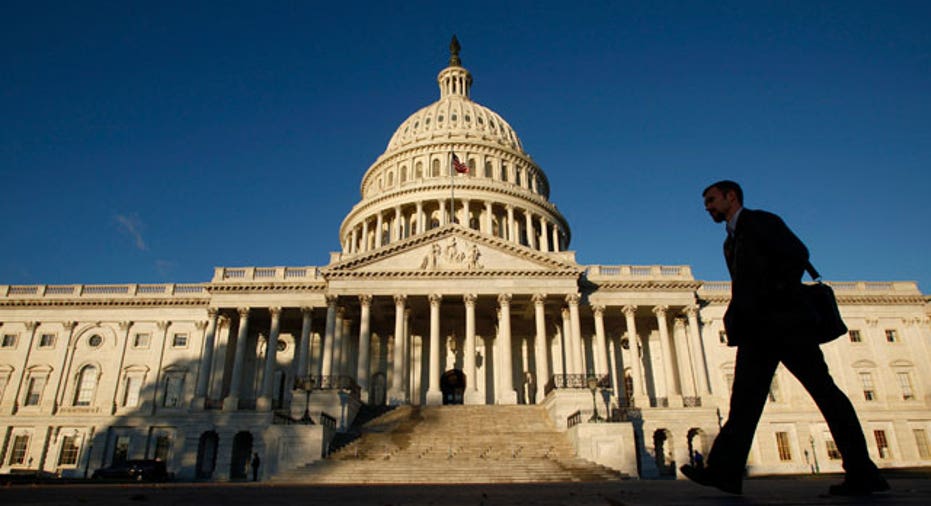Fiscal Cliff Stalemate Continues: More Talks, No New Deals

The White House and House of Representatives Speaker John Boehner's office held more negotiations on Monday on ways to break the "fiscal cliff" stalemate, but Republicans said they were still seeking a new offer from President Barack Obama.
With time running out to avert the onset of tax increases and spending cuts that kicks in on January 1 unless Congress acts, the pace of talks has begun to pick up although neither side gave ground in public.
Boehner met with Obama on Sunday, raising hopes of progress in talks to avert the fiscal cliff that economists say could send the fragile economy back into a recession.
A spokesman for Obama said the lines of communication were still open with Republicans in the cliff talks and Obama believed the two sides could reach a deal.
"The president does believe that we can reach an agreement," spokesman Jay Carney told reporters traveling with the president in Michigan. Neither side offered details of Sunday's face-to-face talks.
"We, broadly speaking, continue to engage in this process with important players and stakeholders," Carney said.
Boehner spokesman Michael Steel said Republicans were still waiting for the president to identify the spending cuts he will make in the deficit-reduction negotiations. "The Republican offer made last week remains the Republican offer," Steel said. The two sides were holding staff-level talks on Monday, he said.
Financial markets have calmed recently after a series of wild swings, when nearly every utterance from a politician about the looming budget crisis caused volatility in stock prices.
Boehner and the House leadership submitted their terms for a deal to the White House last week, after Obama presented his opening proposal. Both sides seek to cut budget deficits by more than $4 trillion over the next 10 years but differ drastically on how to get there.
Obama wants to let tax rates rise for the wealthiest 2 percent of Americans, while Boehner and Republicans oppose letting any rates increase and prefer to find new revenues by closing loopholes and limiting deductions.
Republicans also want deeper spending cuts than Obama has offered in entitlements like the Medicare and Medicaid healthcare programs, while Obama wants to raise more revenue with tax increases and to boost some spending to spur the sluggish economy.
Polling shows most Americans would blame Republicans if the country goes over the cliff, and pressure has been building from some Republicans for Boehner to get an agreement quickly, even if it means tax hikes on the wealthiest.
OBAMA HITS THE ROAD
Obama was heading on Monday to an auto plant in Michigan to press his case for tax hikes on the wealthiest Americans as part of his continuing push for public support in the cliff talks.
Republican Senator Bob Corker of Tennessee called for a quick deal with the White House to allow an extension of the lower tax rates that have been in place for about a decade, except for the top two rates that Obama wants to raise.
"Right now there is no question in my mind the president has the slight upper hand in the negotiations," Corker said on CNBC on Monday.
He said there was support among Senate Republicans for taking that step so that the fiscal cliff negotiations could then shift to focusing on how to restrain the growing costs of Medicare and other entitlement programs.
"If you did it this week (agree to raising tax rates on the richest) you'd have the rest of this month to have the focus totally on entitlements," said Corker, who has a record of reaching out to Democrats on major bills.
More conservative Senate Republicans, most notably Senator Tom Coburn of Oklahoma, also have signaled a willingness to let tax rates rise on higher-income groups.
Erskine Bowles, co-chairman of the so-called Bowles-Simpson deficit reduction commission, said he thought chances were improving for a deal.
"I think the atmospherics are getting so much better. We have kind of gotten out of Kabuki theater and gone to dancing the tango," Bowles told CNBC on Monday. "Any time you start to tango you've got a chance."
He said he did not expect the president to budget on his demand that taxes rise for the top 2 percent of earners.
"I would almost guarantee that rates are going to go up for people in the top 2 percent," he said.
U.S. stocks rose on Monday but moves remained muted as investors looked for any signs of movement on the fiscal cliff front.
The S&P 500 index has nearly retraced the 5.3 percent slide it suffered in the first seven sessions after the November 6 presidential election.
"The sentiment has definitely changed," said Andrew Wilkinson, chief economic strategist at Miller Tabak & Co in New York. "The market has become somewhat desensitized to headlines out of Washington because the fear of the economy hitting a wall in 2013 if we don't get a deal done has diminished."



















